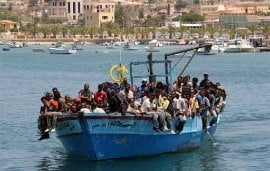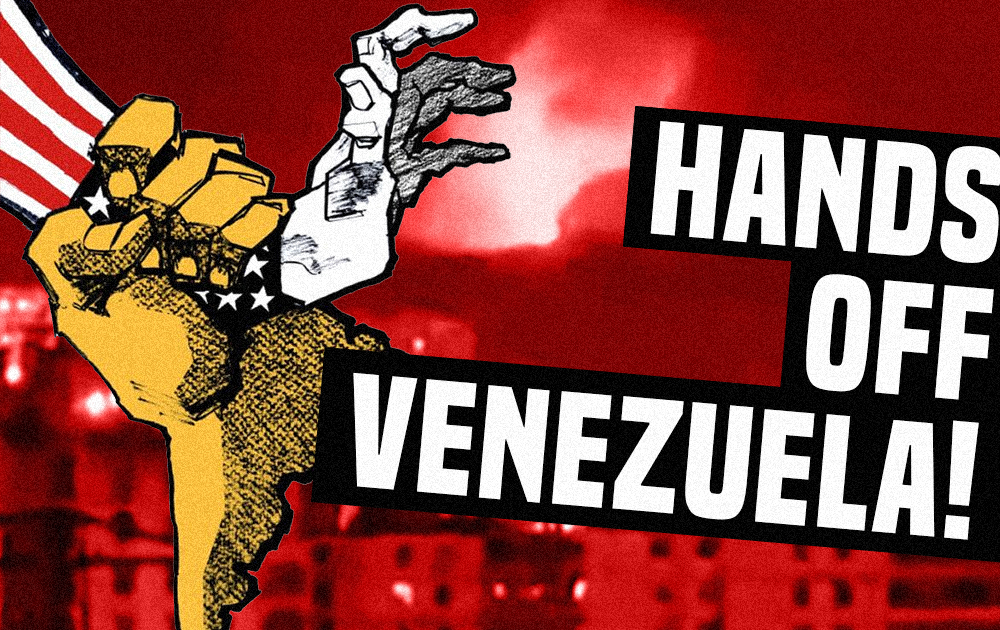Sam Hall looks at the analysis presented in a recent UN report, which reveals the truth about forced migration and asylum seeking. The report is a condemnation of the political and economic situation in the world at the moment, highlighting the grinding poverty and terrible conflict that is the product of global capitalism.
A recent report released by the UN has revealed the truth about forced migration and asylum seeking. According to the report the number of people who have been forcibly displaced and made to seek refuge abroad had soared to 50 million by the end of 2013, up six million from 2012, making it the largest number in history.
This report is a condemnation of the political and economic situation in the world at the moment. It highlights the grinding poverty and terrible conflict that is the product of global capitalism.
Empty mansions and millions of refugees
This report makes the decay of capitalism blindingly obvious, at a time when the super-rich are investing their money in London mansions, which then sit empty for years on end, while tens of millions of people are made homeless and forced to move abroad elsewhere in the world.
The headline figures of the report make sobering reading: 16.7 million refugees; 33.3 million people classed as internally displaced; and 1.1 million asylum seekers in the world today. Altogether, this amounts to 51.1 million people. This is roughly 0.7% of the world’s population – as many people as live in South Africa for example, and just shy of the total population of England.
Not everyone is willing to draw all the necessary conclusions from this report. “The massive increase in refugee numbers,” the Independent says, “was primarily put down to the conflict in Syria.” The article then goes on to say, “the Syrian conflict has made 2.5 million people refugees by the end of last year, in addition to major new displacements in the Central African Republic and South Africa.”
This analysis is superficial. What is required is an explanation of the geo-political and economic causes of these conflicts, and an explanation of why the sudden upsurge in forced migration is taking place now, five years into a major crisis of capitalism.
A new epoch of world instability
Geo-political instability has been increasing in the past period in proportion to the decline of US imperialism and the rise of China. Russia has also begun to reassert its authority in the areas it considers to be within its global sphere of influence. With the crash of 2008-09, the weakness of the US economy has been under the spotlight and has been reflected in the weakness of US foreign policy with regard to Syria, Ukraine and, most recently, Iraq.
Together this makes for an extremely unstable world situation, compounded by financial instability and uncertainty. The surge in forced migration by six million people in just one year is a symptom of this political and economic crisis on a world scale.
Crises of all types – military, economic, social and political – are inevitable under capitalism. Since the economic crisis of 2008 we have seen working class people bearing the cost of rescuing capitalism.
This forced migration is a product of a military and political crisis that is being borne by some of the most oppressed and exploited people in the world.
It is not the super-rich whose houses are being destroyed in Gaza, nor are they being forced to flee from Islamic fundamentalism in Iraq. Capitalism is a system that forces the poorest in society to pay for the crises of the richest.
Catastrophic crisis
One Refugee Council chief stated that, “The world is in the grip of a refugee crisis of catastrophic proportions which we ignore at our peril. We should not fool ourselves into believing this is someone else’s problem; this is a global crisis which requires global solutions, and it is essential the UK plays its full role.”
It’s unclear what this “full role” from the UK should entail because any effort to alleviate this crisis will cost the UK money that the British ruling class is unwilling to pay at a time when it is imposing severe cuts in the hope of stabilising the crisis.
Even in a period of capitalist boom, aid spending and the housing of refugees would only have been done if some political or economic benefit could be unscrupulously extracted from it. At a time of relentless austerity, such measures are little more than dreams.
The government in Britain today is embarking on savage cuts directed against working class people – foreign policy is always just an extension of domestic policy meaning there is little hope for a humanitarian intervention in this crisis of forced migration from the Tories. If anything the pressure of UKIP will in fact push them in the other direction – towards a dispassionate aloofness from the plight of the millions of forced migrants.
For international socialist revolution
However, the Refugee Council chief is right in one respect – this is not someone else’s problem and it certainly requires a global solution. But capitalism, which divides people along national, religious and many other lines, cannot achieve this. Capitalism is the root cause of this crisis of forced migration – only through its destruction can the solution be found.
Our proposed solution, that of a socialist transformation of society, is one that won’t result in another crisis a decade or two down the line; that won’t perpetuate the harrowing exploitation of the third world; that will allow, for the first time, the peoples of exploited and oppressed countries to develop the places in which they live culturally, politically and economically.
The efficient distribution of global wealth and the abolition of national frontiers that could be achieved under socialism will herald an end to the horrors of forced migration and consign it, along with capitalism, to nothing more than a relic of history.
.






